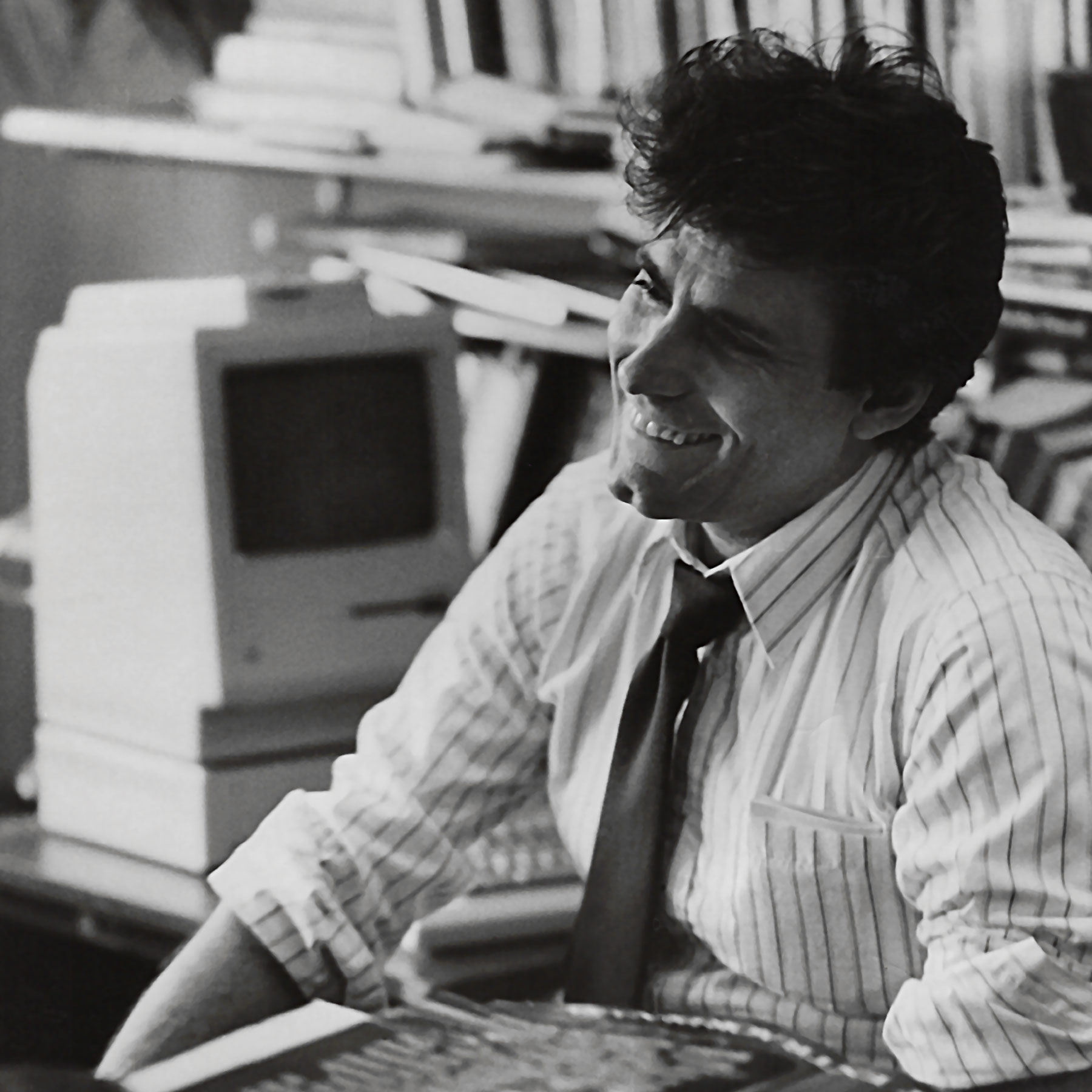
Timothy Binkley studied mathematics at University of Colorado at Boulder, earning a B.A. (1965) and an M.A. (1966). His PhD in philosophy, from University of Texas at Austin (1970), explored Ludwig Wittgenstein’s use of language.
Binkley has lectured and taught at several colleges and universities in the United States, most notably at School of Visual Arts where he initiated the MFA Computer Art program, the first of its kind in the country. In 1992, he founded the New York Digital Salon, an international exhibition of computer art.
He has exhibited his interactive art in the United States, Europe, South America, and Asia.
Philosophy
Binkley postulates that 20th-century art is a strongly self-critical discipline, which creates ideas free of traditional piece-specifying conventions including aesthetic parameters and qualities. The artwork is a piece, and a piece isn’t necessarily an aesthetic object—or an object at all. Binkley states that anything that can be thought about or referred to can be labeled an artwork by an artist.
Binkley argues that the computer is neither a medium nor a tool, since both media and tools have inherent characteristics that can be explored through an artist’s gestures or physical events for mark-making. Instead, the computer is a chameleon-like or even promiscuous assistant, whose services can be applied to any number of tasks and whose capabilities can be defined endlessly from application to application. Binkley refers to the computer as a non-specific technology and an incorporeal metamedium. Yet the computer contains phenomena not found in other media: namely, a conceptual space where symbolic content can be modified using mathematical abstractions. The notion of an “original” and its consequent value are considered irrelevant, obsolete, or inapplicable to computer art.
Binkley’s philosophy extends beyond art and aesthetics to culture itself, whose foundations he believes we are overhauling through our involvement with computers.
